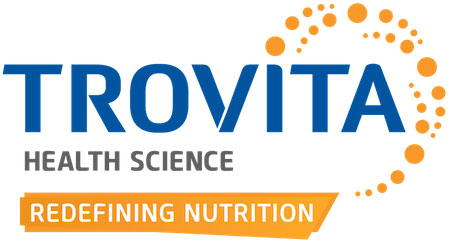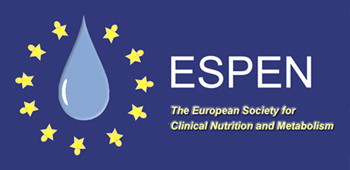“RAISE AWARENESS OF THE HIGH PREVALENCE OF U.S. HEALTHCARE MALNUTRITION”
Mission: To improve patient safety and quality of care by raising awareness and increasing knowledge about disease-related malnutrition in the US.
Vision: To provide the healthcare community, including acute care facilities, rehabilitation facilities, home healthcare and nursing homes, with a full spectrum of resources to assess and ultimately minimize healthcare-related malnutrition through our consulting services.
Executive Summary:
While the healthcare industry focuses mainly on the increasing incidence of obesity, the prevalence of hospital malnutrition is equally alarming. Studies have documented the breadth and severity of undernourishment in hospitals for nearly 30 years, revealing that up to 55% of hospital patients are undernourished or at risk (Reilly & McWhirter). This percentage is equivalent to over 33 million individuals in the United States, annually. This number exceeds the number of patients affected by healthcare acquired infections and medication errors combined on an annual basis. Many have found that healthcare malnutrition is a variable associated with poor healing, high complication rates, as well as higher rates of morbidity and mortality and ultimately, higher costs to healthcare. To date, many U.S. hospitals are attempting to deal with the prevalence of malnutrition, but are lacking the outcome data and the protocol to collect the data to support their efforts. nutritionDay in the U.S. will provide them with this information.
nutritionDay in the U.S. is a non profit organization formed as part of a global initiative, nutritionDay Worldwide, to improve patient and resident safety and quality of care by raising awareness and increasing knowledge about disease-related malnutrition. It is developed from and supported by the infrastructure of nutritionDay Worldwide and the Medical University of Vienna. November 9, 2023 was the 15th annual nutritionDay in the U.S. and the is the 20th annual nutritionDay Worldwide. To date, nutritionDay Worldwide has reached 72 countries, more than more than 300,000 patients and 8,000 units including the United States. In the past, more than 25% of the patient data was collected from the United States. In addition, greater than 25 professional associations, from around the globe, support this initiative. The Medical University of Vienna, in Vienna, Austria, is the primary investigative site for nutritionDay Worldwide and the Primary Investigator/Worldwide Coordinator is Dr. Michael Hiesmayr, M.D.,Ph.D. Karin Schindler, Ph.D. is the co-founder of nutritionDay and Sigrid Kosak is the Worldwide Project Manager.
The nutritionDay in the U.S. team consists of clinicians and professionals experienced in the medical community for many years. In addition to providing the clinical community with data collection tools and their facility specific nutritional care outcome report, our ultimate goal is to support your efforts to minimize healthcare malnutrition in the United States through education and participation in nutritionDay.
There is no fee to participate in nutritionDay. For statistical significance, all you need is a minimum of one ICU or non-ICU with 20 patients*. Patient data collection takes place on this one scheduled day by all participating hospitals and nursing homes around the world. Patient outcome data is than collected 30 days later, 60 days later or 180 days later for non ICU, ICU, and nursing home units, respectively. All of the necessary documents are provided by the global coordinating center and are available on the global website, www.nutritionday.org and U.S. website, www.nutritionDayUS.org. Each participating facility or unit receives a comparison of its own nutritional care results to reference data of all units of the same specialty type. Annual participation allows facility benchmarking and the opportunity to measure the success of any nutritional care process improvements.
Because nutritionDay is managed by qualified medical professionals, revenue is required. Our revenue streams include educational programs, grants, donations, consulting and sponsorships. Program sponsors will be provided with the opportunity to co-market with the nutritionDay marketing campaign, and U.S. healthcare malnutrition data mining. nutritionDay in the U.S. is a non-profit 501 c (3) organization.
*If you have more than 20 patients per unit on nutritionDay, all patients on the unit must be included in nutritionDay. If you have less than 20 patients on nutritionDay, continue nutritionDay on subsequent days until you have gathered data on 20 unique patients.
Program Objectives:
The objectives of nutritionDay in the U.S. mirror the nutritionDay Worldwide initiative, and address improved patient safety and quality of care by raising awareness and increasing knowledge about disease-related malnutrition.
• Increase awareness within the healthcare industry of the prevalence of hospital malnutrition and its impact on costs, complication rates, healing, and higher rates of morbidity and mortality.
• Provide hospitals and the healthcare industry with the necessary data to support needed changes to their facility’s approach to nutrition and dietary care.
• Allow individual hospitals to compare their data to other similar participating facilities.
• Allow participating facilities to benchmark their progress at minimizing healthcare malnutrition annually.
• Because patients often enter a hospital with a recent history of poor eating habits, a stay in the hospital often worsens their already undernourished state. For this reason we are hoping to secure enough funding to generate awareness among specific segments of the general population on the importance of proper nutrition care for the sick and elderly while at home, and especially prior to admittance to a hospital.
References
• The A.S.P.E.N. Nutrition Support Practice Manual: Second Edition, 2005, American Society for Parenteral and Enteral Nutrition, p. 38
• McWhirter, JP and Pennington, CR, Treatment Protein Energy Malnutrition in Chronic Nonmalignant Disorders, Am J of Clin Nutr. Vol 74, No. 1,6-24, July, 2001
• Reilly JJ, Hull SF, Albert N, Waller A, Bringardener S. Economic impact of malnutrition: a model system for hospitalized patients. J Parenter Enteral Nutr 1988;12:372-6.




